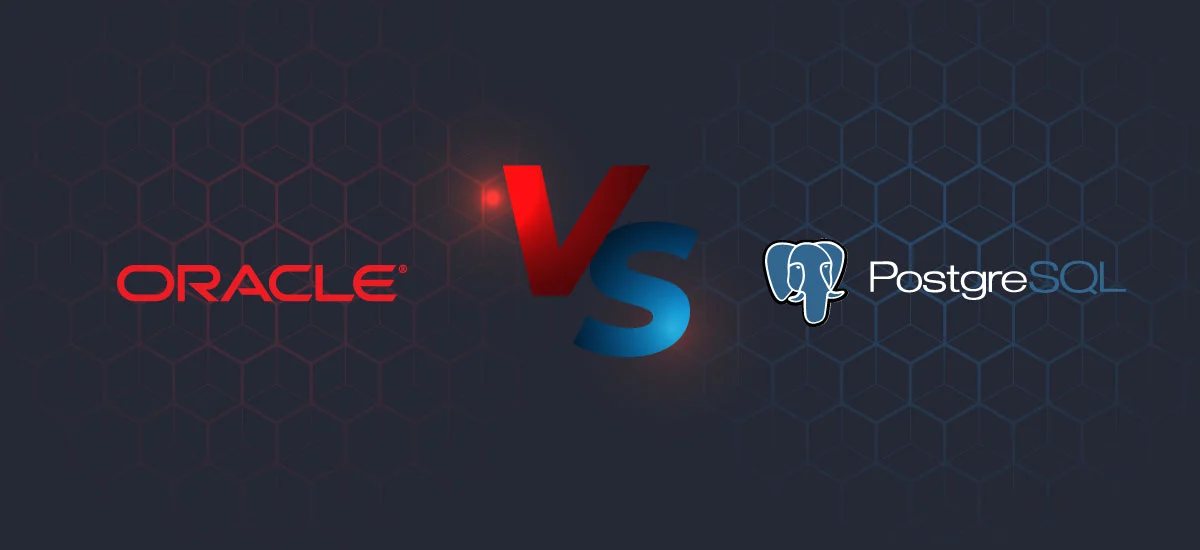Oracle vs PostreSQL: The Battle of the Titans

What You’ll Learn
- A detailed comparison of Oracle and PostgreSQL across five key parameters: value for money, support, functionality, scalability, and compatibility.
- Which database system, Oracle or PostgreSQL, excels in terms of cost-effectiveness, support options, and flexibility.
- Insights into PostgreSQL’s rising popularity in modern development environments and how it stacks up against Oracle’s extensive experience and functionality.
- The role of version control systems like DBmaestro in enhancing the capabilities of both Oracle and PostgreSQL.”
PostgreSQL vs Oracle: The Showdown
Both methodologies are very popular today, but PostgreSQL has gained market share recently and is trending upwards because (some have claimed) it has features more suited to today’s dynamic development requirements. Review five crucial database parameters and decide for yourself.
-
Value for Money – PostgreSQL wins
Oracle is a commercial solution that has steep pricing options, with additional payments required for extra features. PostgreSQL easily clinches this comparison since acquisition, installation and support is completely free of charge. This factor alone can prove to be crucial when it comes to small and medium-sized organizations. If budget is a primary concern for your organization, consider PostgreSQL as a free and open-source option that still provides robust functionality and support through its active community.
-
Support – PostgreSQL wins
Another win for the open-source solution. PostgreSQL has an extremely active community where patches, tweaks, updates and more can be found very easily. Even answers to questions that arise during installation or upgrades are easy to find with minimal delays. This is not the case with Oracle, where support costs money. Large organizations that choose to implement PostgreSQL can also opt for paid professional support, where services tend to be cheaper than their Oracle counterpart
-
Functionality – Oracle wins
Oracle Database has decades of experience and high levels of development expertise. It not only provides more transactions per second than PostgreSQL, but also arguably provides higher levels of security. However, it should be noted that many of Oracle’s security features come at an added cost. Oracle is secure and ensures that user data is not tampered with through prompt updates. For organizations that prioritize security and need a database that offers advanced transactional capabilities, Oracle’s paid features can provide the extra layer of protection and speed required for large-scale operations. Its experience with various industries also gives it the upper hand. That doesn’t mean, however, that PostgreSQL has poor functionality. It offers three levels of transaction isolation: Read Committed, Repeatable Read and Serializable. It is immune to dirty reads. Requesting a Read Uncommitted transaction isolation level provides read committed instead. PostgreSQL supports full serializability via serializable snapshot isolation (SSI).
-
Scalability – too close to call definitively
While both solutions are quite capable in this category, PostgreSQL may have a slight advantage due to its open-source characteristics. Not only is it much lighter than Oracle, it doesn’t require users to spend more money to expand infrastructure. PostgreSQL is capable of accommodating any volume of data.
-
Compatibility – PostgreSQL wins
Oracle has a robust language in PL/SQL, however PostgreSQL allows you to write language handlers in multiple languages (Python, R, etc.) directly in the database.PostgreSQL also clearly has the edge when it comes to compatibility with operating systems, which is extremely crucial in today’s diverse and complex development environments. FreeBSD, HP-UX, Linux, NetBSD, OpenBSD, OS X, Solaris, Unix and Windows are all compatible with PostgreSQL , which is a big advantage.
What about Version Control?
DBmaestro’s Source Control product supports both Oracle and PostgreSQL. And it works with any IDE. Changing procedure code, creating new tables and reviewing changes is a very user-friendly and easy process. Save your changes in one place and work with any git repository. When you’re ready, push the changes so that all other teams can pull them. DBmaestro’s Source Control product will automatically generate the code to include all changes in your database(s). In fact, DBmaestro’s Source Control works with MySQL as well as MariaDB, with MsSQL and PostgreSQL. They offer a free trial of their Source Control product, so anyone can evaluate it for free.
Key Takeaways
- PostgreSQL wins in terms of value for money, offering free acquisition, installation, and support, making it a solid choice for small to medium-sized organizations.
- Oracle takes the lead in functionality, providing better transaction rates and stronger security features, though many come with added costs.
- Both databases are strong contenders for scalability, but PostgreSQL offers better compatibility across multiple operating systems and languages.
- DBmaestro’s Source Control product supports both Oracle and PostgreSQL, providing a user-friendly experience for version control and database changes.





